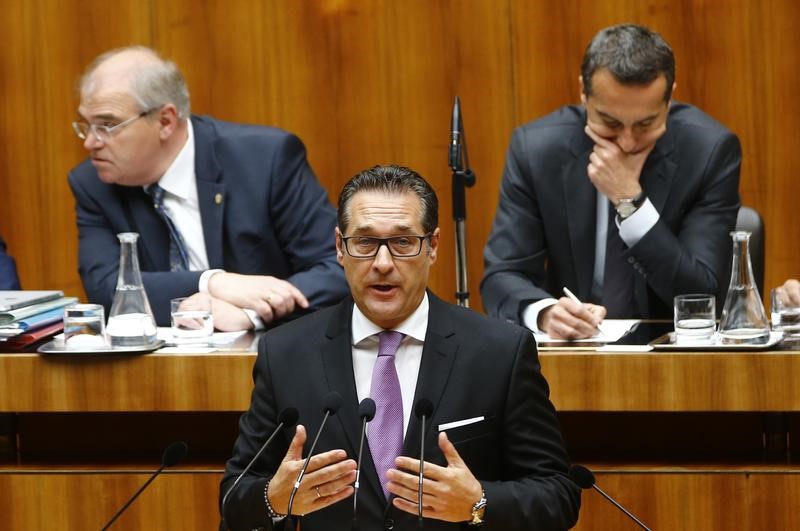By Kirsti Knolle and Francois Murphy
VIENNA (Reuters) - Austria's main parties agreed to hold an early parliamentary election on October 15, Chancellor Christian Kern said on Tuesday, in a vote that might bring the far-right Freedom Party into government.
In the autumn of a year that will have seen Dutch, French, British and German general elections, the Alpine republic will decide its future course on immigration, labour and social policy and its position within the European Union.
"We have agreed on Oct. 15 (for parliamentary elections)," Kern said after meeting leaders of all parliamentary parties. The next election was originally due to be held in autumn 2018.
Kern's government has been blocked for months in disputes over reform policies between his Social Democratic Party (SPO) and its conservative People's Party (OVP) coalition partner, which have been exacerbated by internal wrangling in the OVP.
Since the OVP called for early elections on Friday and elected the 30-year-old Foreign Minister Sebastian Kurz as its new leader on Sunday, its popularity ratings have jumped to 35 percent in a Research Affairs poll from around 20 percent in recent months.
That put the OVP ahead of the other parties in opinion polls. Before this, the populist Freedom Party (FPO) had led the polls for more than a year with support of over 30 percent, followed by the Social Democrats.
The FPO presidential candidate's narrow defeat in December's run-off reflected the steep decline in Austrian voters' trust in their main parties.
"You should get up one after the other and apologise to the people for how you messed up," FPO General Secretary Herbert Kickl told the government on Tuesday in parliament.
"You must not only be taught what the topics are, you not only need a helping hand on the election date," he said. "You must also be shown how to rule better."
The Social Democrats ruled with the FPO from 1983 to 1987. In 2000, the OVP and FPO agreed on a government headed by the OVP's Wolfgang Schuessel, which led to a six-month diplomatic boycott of Austria by other European Union member states.
But the FPO, whose charismatic late chairman Joerg Haider made it into Europe's most successful far-right party with 27 percent in Austria's 1999 general election, dropped to 10 percent in 2002 after a spate of in-fighting, policy squabbles and opposition to the EU's eastward expansion.

Under its current leader Heinz-Christian Strache, the FPO has gained massive support with a eurosceptic, anti-immigration and anti-Islam policy. Strache has called for "minus migration" and a ban on "fascistic Islam".